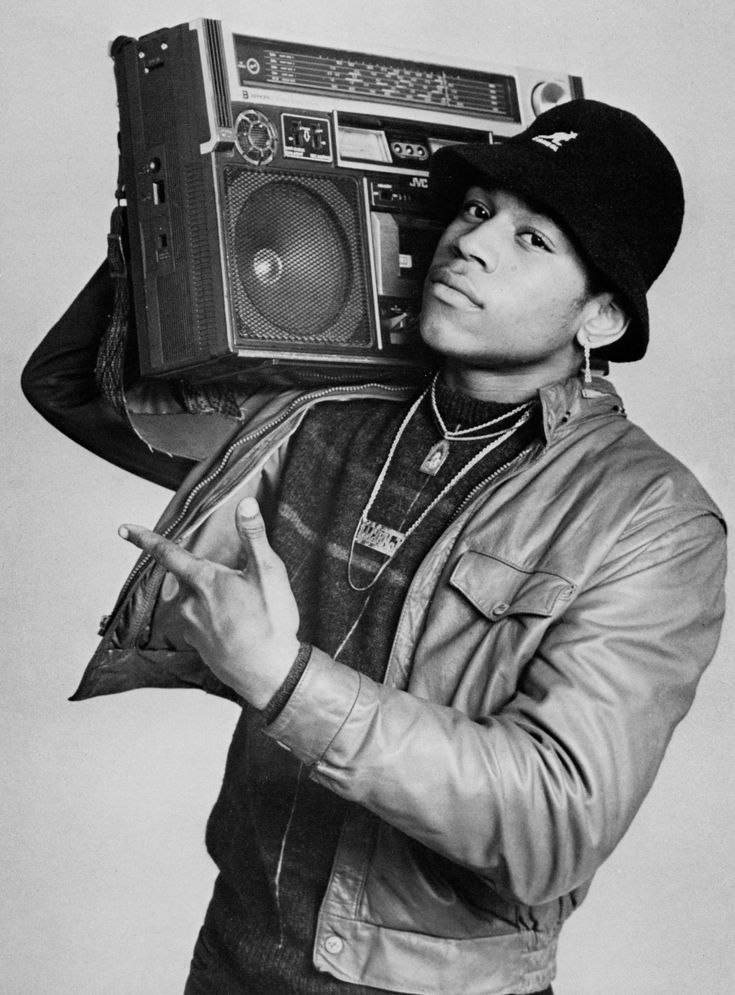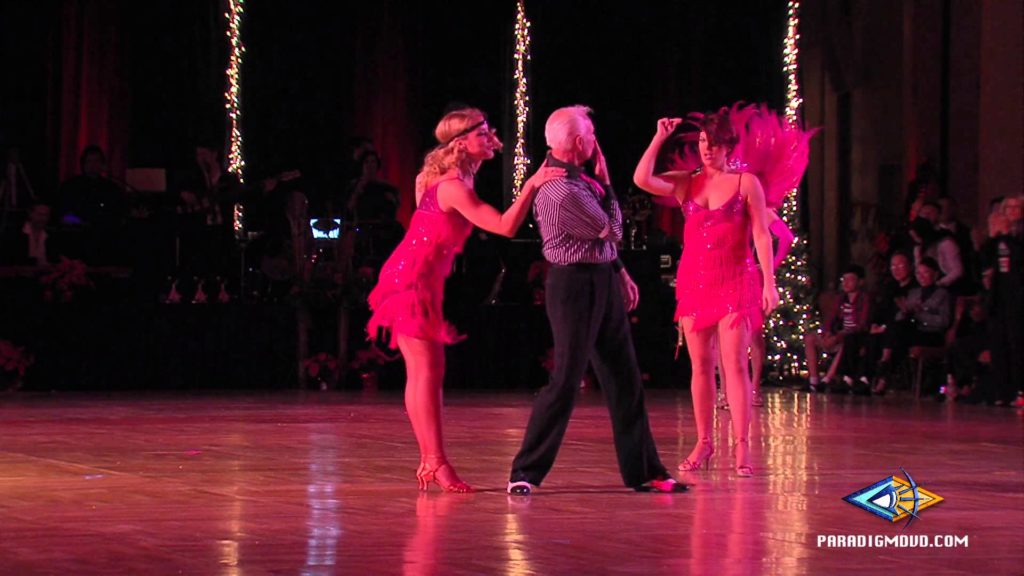Learn how to praise dance
10 steps to powerful dance ministry
Dance As A Worship Leader
Your dance has the power to elevate God's people into the heavenly realm of pure worship. We must make sure that our dances are not performances to promote ourselves, but ministry that lifts up Jesus. We must see ourselves and behave as worship leaders who dance to inspire others to worship Jesus.
You are more than a dancer. You are a worship leader and dance is the medium that you use to lead the people of God into worship. It is very important that we have the mindset of a Worship Leader. We might have to begin to change our vocabulary. We shouldn’t say “Oh! I’m going to perform” or “I’m just going to dance”, but “I’m going to minister”, or “I’m going to lead worship”. It’s very important that we change our mindset and our vocabulary to think that way. As we do, we will make a powerful impact as worship leaders.
Comments (0) | TrackBack (0)
Ten Steps To Powerful Dance Ministry / Step Six
Ten Steps To Powerful Dance Ministry Step 6 Be Committed To A Local Church
There is no place like home Church.
If you know Jesus as your Savior, you should be part of a local fellowship. I don’t mean just going in and out and then dancing all over the world. I mean really in grafted in the life of the Church. You should know the pastor and the pastor/ leadership should knows you. Give your resources, and service to your Church. Because of the relationship you should receive the Church's resources, prayer support, and pastoral covering. That is important for your protection and accountability.
The dance ministry is a serious ministry, and we should be accountable for the things that we do outside of the local body. So please, be part of a Church , adhere to the tenets and the culture of that body. Your national and international worship dance ministry will be more powerful and far reaching if you are dedicated to and supported by a local Church there is no place like home Church.
Do you want to study to show thyself approved for powerful worship dance leadership?
Register today for the next " Biblical Study of the Dance"
find out all the information
in the link below.
http://biblicalstudy.eventbrite.com/
Comments (0) | TrackBack (0)
Ten Steps to Powerful Dance Ministry Step Four
Step Four to powerful Dance Ministry
Become
a lifelong student of the art of dance.
Become a lifelong
student of the art of dance. In Christian dance we might come into the dance ministry with no
formal dance training wondering if training is necessary for ministry. I
know that God can use us right were we are. And, if we want to dance in excellence,
avoid injuries with longevity, training is a must (dancing incorrectly can cause injuries) I
encourage all worship dancers to get more training, and to study dance. If
you
haven’t had any ballet, get some. or modern dance, or jazz,
some type of structured class. Go to live professional dance concerts
to experience movement on a stage with theatrical lighting,, costumes,
music and skilled choreography. The experience of a live dance concert
is a priceless asset to your ministry. Looking at dance will make
you a better student of dance. It is never to late to study the art of
dance. A dance education can only help you to be more powerful with
excellence for our Lord.
or modern dance, or jazz,
some type of structured class. Go to live professional dance concerts
to experience movement on a stage with theatrical lighting,, costumes,
music and skilled choreography. The experience of a live dance concert
is a priceless asset to your ministry. Looking at dance will make
you a better student of dance. It is never to late to study the art of
dance. A dance education can only help you to be more powerful with
excellence for our Lord.
Look out for step five to powerful dance ministry.
Leave a comment for me. I want to hear what is on your dancing heart.
Be blessed,
Jocelyn
Comments (1) | TrackBack (0)
Ten Steps to Powerful Worship Dance/ Step Three
Step Three to powerful dance ministry
Focus on the dance
Focus
on the dance.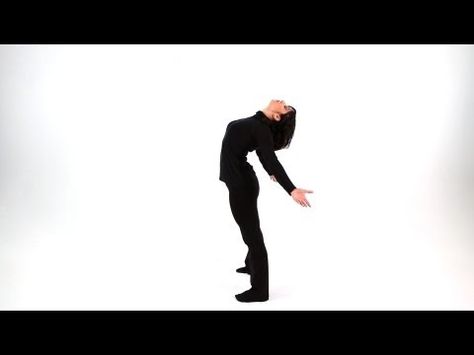 If dance is what God has called
you to do. Pour yourself
into the ministry. Sometimes I meet dance ministers and they are
involved in so many things other than dance. These other ministries
are good to be a part of, but dance takes such of us emotionally
,physically, and mentally. If you’re torn in different directions, it
might become burdensome to minister with joy, excellence and power .
If dance is what God has called
you to do. Pour yourself
into the ministry. Sometimes I meet dance ministers and they are
involved in so many things other than dance. These other ministries
are good to be a part of, but dance takes such of us emotionally
,physically, and mentally. If you’re torn in different directions, it
might become burdensome to minister with joy, excellence and power .
I’m not saying don’t be involved in other things, but really pray and make sure it’s what God would have you to do. Dance ministry is very time-consuming. Being part of a worship dance team requires many hours of training and rehearsing. We also have other things in our lives that we’re responsible for. ( family, school, work) So just be very wise of where you put your time and energy. You are called to dance for the Lord. Focus.
Look out for Step 4 to powerful worship dance.
Leave me a comment and tell me whats on your dancing heart.
Check out the praise dance life resources in the links below.
www.garmentsofgloryresourceguide.com
Comments (5) | TrackBack (0)
Ten Steps to Powerful Worship Dance/ Step Two
Ten steps to powerful worship dance/ Step Two
Dance at home.
Dance in the secret place: I know
you’ve heard ‘go to your prayer closet’. Well, we need to go to our
prayer closet to dance and pray. Give the gift of dance
that God has given you, back to Him in the private,
closed-door setting,. Make it a sacrifice of praise for the Lord.'s eyes only.
It’s a sad thing if you can only dance when other people are looking. What about at home for the audience of one, Jesus? What about in the wee hours of the morning, getting up and just lifting your hands and turning and bowing before Your King?“
Jesus
will enjoy the dance, and He’ll give you more dances. And you’ll
find that you’ll be dancing together. He wants to see and enjoy your
dance. He dances over you with joy. Zephaniah 3:17 — ‘His banner over
us is love.’ So you and Your Jesus,
Your Father, Your Best Friend will dance together, and He’ll give you
choreography, He will answer questions. He will set in your mind the
purpose for the ministry and you will be even more powerful. You will
develop a better relationship with Him.
And you’ll
find that you’ll be dancing together. He wants to see and enjoy your
dance. He dances over you with joy. Zephaniah 3:17 — ‘His banner over
us is love.’ So you and Your Jesus,
Your Father, Your Best Friend will dance together, and He’ll give you
choreography, He will answer questions. He will set in your mind the
purpose for the ministry and you will be even more powerful. You will
develop a better relationship with Him.
Give your dance to the Lord first . Dance
with Him, before Him, at home, in your private place, in the inner
court, in the closet, and you will see a change. Try it today. I know that you will love it.
Look out for Step 3 to powerful worship dance.
Leave me a comment and tell me whats on your dancing heart.
Check out the praise dance life resources in the links below.
www. garmentsofgloryresourceguide.com
garmentsofgloryresourceguide.com
Comments (2) | TrackBack (0)
CLASSES
| COURSES OFFERED
Class Schedule & Details Summer Dance Camp |
Performance Dance Class First Steps Dance Class Youth Praise Dance Adult Praise Dance Youth Dance Workshops Dance Ministry School Class FEES:
| On-Line DanceMinistry Course Have you ever wanted to learn basic biblical knowledge of praise dance ministry but could not afford the classes, or the classes were too far for you to drive? Well I have just the solution, Basic Dance Ministry Classes offered on-line at a minimal cost. Instructor/Teacher TestimonialsPlease watch videos below to hear from the Instructor and from students who have taken the course. | ||||||||
Learn how to properly praise a child - and you will not have to educate him
It is so simple
cat angel
The Inferiority of Resentment: The Big Ambition of a Little Man
10 things to stop being ashamed of!
It's not about you!
The parable of the ideal woman and man
Emotional Addicts
Timeless Tips
Deep quotes from the cartoon "Hedgehog in the Fog"
There is such a thing as “credit of praise”. It is not issued at the bank, they cannot close financial issues, but in raising children, one cannot do without this loan. Olga Novash, a psychologist, mother and founder of the School of Parenting Excellence, tells how to praise children correctly.
It is not issued at the bank, they cannot close financial issues, but in raising children, one cannot do without this loan. Olga Novash, a psychologist, mother and founder of the School of Parenting Excellence, tells how to praise children correctly.
Praise is actually my favorite topic. I watch children and sometimes I think that if they are properly praised, then parents will not have to do anything more to educate them. Children will grow up self-confident and proactive, independent and self-sufficient, healthy self-esteem will allow them to fearlessly take on any life challenges.
Beautiful picture of the future, isn't it? To do this, we need the so-called "credit of praise", when we notice the good in another person, but not after the "feat" he accomplished (brought a star from the sky, a mountain of washed dishes, annual "dozens" in the diary), but as if in advance, in advance. That is, we give the child a message that we believe in him.
This is the case when the teacher checks the notebook of a new student not “to the fullest extent of the law”, so that he is afraid just in case, but gives him an extra point for diligence, turns a blind eye to some corrections. And then the child responds to this advance of faith and returns a hundred times more.
And then the child responds to this advance of faith and returns a hundred times more.
Two vivid examples from personal experience I have seen many times how this works not only with small children, but even with harsh uncles. Last year, the youngest Masha jumped unsuccessfully in a dance lesson and sprained her ligaments in her leg. It was painful and scary, so the choreography became unloved. She quit...
And this year she asked me to record her for vocals. But there, in order to perform on the big stage, you also need to put on a dance. She went to the first lesson through force: “I will sing, I don’t want to dance!” But we agreed to try. After the lesson, the teacher came out and said so many nice words: about smooth hands and a long neck, that the next time Masha could not wait for the choreography lesson, having rehearsed the dance more than once at home.
Here is another example from my adult life. A few years ago, I got a job at a very masculine company that had several hundred tough engineers.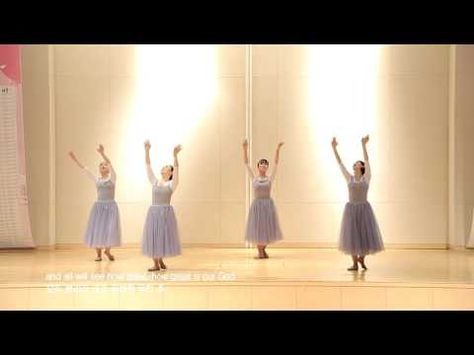 An innovative project from the future, a complex organizational structure, a large number of divisions - all this only aggravated the already difficult situation. Sometimes it seemed that in the noise of so many voices it was impossible to hear each other, let alone reach an agreement. And so, after reading books on parenting and closing my eyes, I decided to offer adult men something incredible: at the end of each working meeting, choose a specialist whose opinion at the current moment has been most criticized by others, and ... praise him, speak, for that we can be grateful to him, how he helped the team and what his strengths are in general.
An innovative project from the future, a complex organizational structure, a large number of divisions - all this only aggravated the already difficult situation. Sometimes it seemed that in the noise of so many voices it was impossible to hear each other, let alone reach an agreement. And so, after reading books on parenting and closing my eyes, I decided to offer adult men something incredible: at the end of each working meeting, choose a specialist whose opinion at the current moment has been most criticized by others, and ... praise him, speak, for that we can be grateful to him, how he helped the team and what his strengths are in general.
At first, there was strong resistance to this proposal. People left the meeting room with the words: “What nonsense! Who will tell you the truth!” And it was oh so difficult to find kind words for another. At first, listening to even good words from colleagues was a real test. And after a few weeks, it was already felt how everyone was waiting for those very last minutes of the meeting: who will be the object of praise this time? After a few weeks, it was much easier to see the best in the person sitting next to you and tell him about it. After some time, miracles began to happen. In the project, which was implemented on the territory of two different countries, at a distance of several thousand kilometers, in different languages, synergy appeared: the thought of one person was continued in the work of other departments, the call for help was answered by the support of many people, where they used to argue, now they are looking for optimal solution.
After some time, miracles began to happen. In the project, which was implemented on the territory of two different countries, at a distance of several thousand kilometers, in different languages, synergy appeared: the thought of one person was continued in the work of other departments, the call for help was answered by the support of many people, where they used to argue, now they are looking for optimal solution.
It is necessary to praise correctly If praise can transform and create in such a way, then why is it most often answered the question “To praise or not to praise?” do we, parents, answer: “Praise, but in moderation”, “No, otherwise it will become proud” or “No, praise relaxes”? It turns out, as in a joke, we simply do not know how to “cook” praise. At my recent trainings, adults tried on praise in the usual form for us, and it turned out that it causes ... doubts: in themselves, in their abilities, or in the person who utters these words. This means that it is not accepted and does not give the desired effect: it does not motivate some and makes others unjustifiably refuse such an important and necessary tool not only in raising children, but also in building human relationships in general.
Why is this happening? Because most often the praise that we are accustomed to using contains an assessment, someone else's assessment. Do you want an example? Imagine yourself in the following situations and at the same time pay attention to your internal reactions.
Situation no.?1. You are at work, and then your manager asks you to urgently prepare a presentation for potential partners of the company within half an hour. In general, you own the issue, so you take on the task. But due to lack of time, you do not have time to check all the data, some are indicated "by eye". After the report, you receive a review from one of the guests of "Brilliant presentation!" What do you feel about it?
Situation no?2. The day turned out to be very active, and in the evening there will be a business dinner. And so you run home, quickly change your favorite and comfortable, but already very worn jeans and a turtleneck sweater for a suit and go to the restaurant. There you hear from a colleague: "You always look so great!" I want to at least mentally answer: “Yes, you should have seen me half an hour ago. ”
”
"Where is the exit?" - you ask. Instead of evaluative praise (good, great, beautiful, excellent, etc.), use descriptive praise. Just describe what you see or what you feel. And that would be proper praise. For example: “Wow! I see that all the toys in this room are in their places! Now it's nice to go into it." Or: “I am glad to look at the even lines of these letters. They remind me of little soldiers lined up for the parade” (if you saw the first and last pages in my daughter Masha’s notebook, you would definitely feel the difference).
Well, and one more example with my eldest daughter: "I'm glad to see your autumn boots in the corridor, as we agreed yesterday" (Anna until the last bargained for the moment when she changes sneakers for warmer shoes, but still she kept her word to me, and here I praised her twice: for changing her clothes for the cold season, and for keeping her word to me).
Why is such descriptive praise good? Oddly enough, but it cannot be . .. stolen, because it consists of two parts:
.. stolen, because it consists of two parts:
- 1. First, we describe the child's actions or the events that follow them (but do not evaluate his personality), ?
- 2. And then he does his inner work himself, determines for himself who he is in this situation and what he already knows or can do, what opportunities and abilities he already has ("Oh! I can clean well and neatly", "I have beautiful handwriting", "I can keep promises. My word is law").
- And it is this self-given definition that will be hard to devalue for anyone in the future. After all, “You are a good fellow” is very easy to cancel with the subsequent “You are a lazy person”, a “beautiful” girl is called “sloppy”, and so on.
- The child, who "thinks" his own virtues, is less and less dependent on other people's evaluation of him. His self-confidence grows, and he more and more often takes on more difficult tasks or takes the initiative.
- Very often, after training, parents come up to me and say: “But this is so unnatural” [praise the child not with the usual “well done”, but describe his actions].
 I'm asking if you've paid attention to the fact that if you don't do anything and don't change, then over time everything starts to naturally collapse, and then you have to deal with unnatural repairs. If nothing is done, then somehow a natural disorder arises in the house, and then you have to make efforts and take on unnatural cleaning.
I'm asking if you've paid attention to the fact that if you don't do anything and don't change, then over time everything starts to naturally collapse, and then you have to deal with unnatural repairs. If nothing is done, then somehow a natural disorder arises in the house, and then you have to make efforts and take on unnatural cleaning. - It’s the same in upbringing: if you don’t change anything and continue to use the habitual and only for this reason that seem to us “natural” patterns, then something may begin to collapse in relations with the child.
- I had to learn descriptive praise because my youngest daughter could re-make the bed or scatter pencils after my “how smart you are”. But the phrase "The bedspread lies so evenly that there is not a single fold" left her quite satisfied. And most importantly, the more I used descriptions in my praise, the less I needed to remind her of this morning routine.
- They tell me: "But such praise requires the constant attention of the parent.
 " Yes, indeed, in order to describe the same children's drawing, you need to distract yourself from everyday affairs or instant messengers and peer into it. But after all, a child is a responsibility that we have taken upon ourselves not for a year, but forever. Of course, it doesn't need our 24/7 attention. But if we decide to give him at least 15 minutes, then let it be 100% of his 15 minutes.
" Yes, indeed, in order to describe the same children's drawing, you need to distract yourself from everyday affairs or instant messengers and peer into it. But after all, a child is a responsibility that we have taken upon ourselves not for a year, but forever. Of course, it doesn't need our 24/7 attention. But if we decide to give him at least 15 minutes, then let it be 100% of his 15 minutes. - And they also ask me: “Why don’t these common “well done”, “beautiful” or enthusiastic “brilliant” still work? Because such praise can touch our self-doubts, often even very old ones, and further strengthen them. Unfortunately, I was told so often in my childhood how sparse my hair was that I believed it. And then no admiration of my friends “Oh, how I wish I had the same curly hair as yours” could not convince me of the opposite. My opinion about myself changed dramatically only when my hairdresser said: “Olya, do you have sparse hair?! Yes, I have an increased consumption of paint for you!” She didn't get excited, she just described what she saw.
- We can say to a child: “What a beautiful dog you drew”, but according to the artist’s idea, it was a fox. And that's it - the child is embarrassed and already doubts his abilities. A couple more such misfires, and he will generally refuse to take pencils in his hands. How many adults think they can draw? Minimum! And now you know why.
- Do you want to not only praise, but also contribute to a child's healthy self-esteem? Describe how you like the selection of colors in the picture, what smooth circles or neat strokes turned out, and let him finish the rest about himself. I hope I managed to convince you of the power and benefits of proper praise for the development of a child. And from now on, praise will become the main trend of the New Year in raising children.
How to praise your granddaughter for good dancing. How to praise a child: the secrets of parenting
Do I know that it is impossible to teach a child to do something for the sake of praise (read - grades)? I know, of course, how not to know. It's written on almost every fence. Well, if not on the fence, then in every book, in every forum and in every social network for sure.
Do I praise children in moderation and “correctly” (that is, according to what is written in the books)? Rarely. Most often, stupid phrases like “you’re just great!”, “You’re my smart girl” or something else good “you are my sweet pie” fly off the tongue. Gets both daughter and son. The fact that something needs to be done about it, I guessed not even because the authors of smart books about raising children spent a lot of time to work out the only correct approach to this problem. Something else bothered me. The other day I was cooking another soup and Nika approached me with such a constructive proposal: “Mom, let me build a Lego castle, and you will praise me and be happy, because little people will live in the castle.” No, well, I will certainly rejoice and, of course, praise. But what is the question.
My path as a mother began with one of the books where it was written that a child needs approval, praise and all kinds of support from parents. I don’t remember how detailed this topic was disclosed there, but since then I have become so used to praising, admiring and giving assessments that I completely stopped noticing the other side of the coin, where excessive praise can do harm. Therefore, now I seriously decided to correct my reckless behavior and began to understand.
In How to Talk So Kids Will Listen and How to Listen So Kids Will Talk, Adele Faber and Elaine Mazlish rightly point out, "Praise is a very tricky business." Not easy, because it may not cause the effect you expect.
Why is excessive praise dangerous? Such deferambs, like “we are the most talented in the world”, “you are the most honest”, “you are the most conscientious”, can lead the child to feel that his parents deliberately exaggerate his merits, he is not so conscientious and is not always honest Well, he knows it himself. And the result is anxiety. The child feels that he "does not live up" to the high bar set by his parents. If he knows that somewhere he does not correspond to his estimated characteristics, he risks focusing on his shortcomings or even suspecting his parents of trying to manipulate.
"The psychologist knows that children tend to get rid of global praise - it is too tiring," Faber and Mazlish write in their other book, Free Parents, Free Children.
Tracey Cutchlow, in 0 to 5, supports this theory and, in addition, considers the consequences of both general and action-specific praise. Sooner or later, she notes, children develop either a predetermined mindset or a developmental mindset. The first is the feeling that your innate ability is all you have. The second is the understanding that the more you work, the more you get. It is not difficult to guess that the latter are more successful and hardworking. And those children who are praised precisely for their actions come to the developmental orientation.
When I praise my children, I seek to reinforce their self-esteem. And it's a great way if you use it right.
There is such a thing as descriptive praise. The adult respectfully describes what he sees or feels. Then the child, having heard the description, is able to praise himself.
I remember how I came to a seminar with the author of the book "The Montessori Miracle" Elena Timoshenko. In particular, it was about the fact that it is impossible to evaluate the child. Then I was more indignant than I understood the principle: how then to explain to the child where he is right and where he is not?! And an example of descriptive praise really helps not to evaluate, but to qualitatively and carefully approach the actions of the child.
Nika ended up building her castle out of a construction set. One wall was much higher than the others, the inhabitants of the castle were lying on the floor, as if after the earthquake, it was clear that something had distracted her daughter, and she was bored to finish the job. Before bestowing the promised praise on the child, I wondered how she would feel when I gave out my standard “oh, this is the best castle I have ever seen.” Surely she will understand that this is a trick for the sake of a trick, that this is far from the best lock that she is capable of.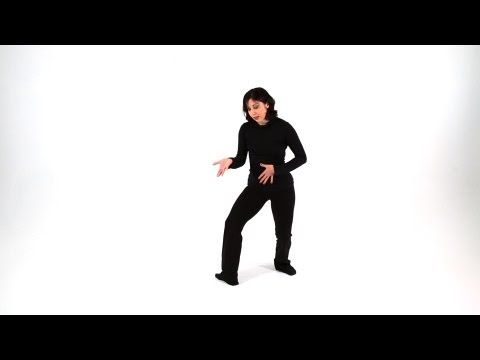 She knows that she was distracted and did not complete the work. I said: “I like how you placed columns around the hall and provided two windows in the castle wall, now its inhabitants will be more comfortable.” “Yes, mom, and they will be able to admire the dawn when they wake up,” Nika exclaimed and with renewed vigor went to “wake up” the princes, princesses, elephants and giraffes lying around everywhere. It turns out that the descriptive praise not only inspired, but also aroused a new interest in the case. And, obviously, it helped to take a step towards setting it up for development.
She knows that she was distracted and did not complete the work. I said: “I like how you placed columns around the hall and provided two windows in the castle wall, now its inhabitants will be more comfortable.” “Yes, mom, and they will be able to admire the dawn when they wake up,” Nika exclaimed and with renewed vigor went to “wake up” the princes, princesses, elephants and giraffes lying around everywhere. It turns out that the descriptive praise not only inspired, but also aroused a new interest in the case. And, obviously, it helped to take a step towards setting it up for development.
When we talk about praise, we must also talk about criticism. Firstly, these two concepts are one way or another somewhere nearby. Both are characteristics of the child's actions. The main secret here is that criticism can, and sometimes should, turn into praise.
Imagine a student's notebook. In it, a dictation is written in terrible handwriting without a single mistake. What does an ordinary teacher write in red ink with an exclamation mark? That's right, he writes: "Disgusting handwriting!" Does the teacher write some kind of remark that the student tried and did not make a single mistake in the dictation? No, most of the time he doesn't write. And what does the child see? He sees red ink everywhere: disgusting handwriting, a missing comma (who cares that it's the only one on three pages, and even omitted by inattention? No one will figure it out, excuses are not accepted), miscalculated, didn't draw the margin, or worse : didn't use the solution that was in the tutorial.
And what does the child see? He sees red ink everywhere: disgusting handwriting, a missing comma (who cares that it's the only one on three pages, and even omitted by inattention? No one will figure it out, excuses are not accepted), miscalculated, didn't draw the margin, or worse : didn't use the solution that was in the tutorial.
My children are not even schoolchildren yet, so examples come to my mind only from my personal practice. Already in the first grade, I knew how to count well for my age. Dad taught me how to add and subtract three-digit numbers in my head, and also how to solve examples with negative numbers. And here's the math lesson. Checking homework. There was an example in the workbook: 3-5=? I wrote the answer: -2. The teacher goes through the rows and checks who decided what and how. The whole class raises their hands: "Here is a typo, here is a typo." I know that negative numbers in the first class do not pass, but I can decide, why not decide? Do you know what my teacher said to me when she saw the correct answer? She said, "Don't ever do that!" It happened more than 20 years ago, but I remember everything like now. I was shocked. And I'm still in shock. At that moment, I learned what injustice is, I realized that no one at school would encourage any additional knowledge, and most importantly, for the first time I thought about how teachers behave and how they should behave.
I was shocked. And I'm still in shock. At that moment, I learned what injustice is, I realized that no one at school would encourage any additional knowledge, and most importantly, for the first time I thought about how teachers behave and how they should behave.
However, there are different teachers, for example, this is what, for example, Olga Vasilievna Uzorova, a practicing teacher, author of textbooks for preschoolers and elementary school, told me about proper praise: “Many children are happy to go to school on September 1. But not even a week passes, as the word “school” causes more and more melancholy in the child.
Why? How can this be fixed?
Success is very important for any child. If your child is a student, then it is important for him to be successful in this social role.
Of course, schools have an individual approach to students. But best of all, an individual approach to your child will be found by his family. No one, except for the closest person, will be able to see the very first microsteps of the first victory: “the tail of the letter Y turned out just fine”! And it doesn’t matter that this is the word “rod”, in which the rest of the letters, including the first element of the letter U, turned out terribly, put out the light.
Because the first success that is noticed inspires the child, he begins to believe in himself. Lots and lots of support for the child - and your strengthened baby will joyfully and confidently walk along the Road of Knowledge.”
Olga Uzorova, Julia Gippenreiter, Faber and Mazlish, Tracey Catchlow, Maria Montessori, Elena Timoshenko, Richard Templar - I so wanted to figure out how to praise children that I turned to the opinion of each of these authors. It turned out that all of them, although they use different terms, offer essentially the same solution: the child should be praised for his actions. As a mother, it became much easier for me when I realized this.
A two-year-old son came up to me with a craft from kindergarten. It was a cucumber cut out of green colored paper with plasticine “pimples” glued on. The child looked solemn. I gathered all my knowledge into a fist and issued: “Slavochka! This is the best craft in the world! I have you…” I stopped before saying “the best artist”.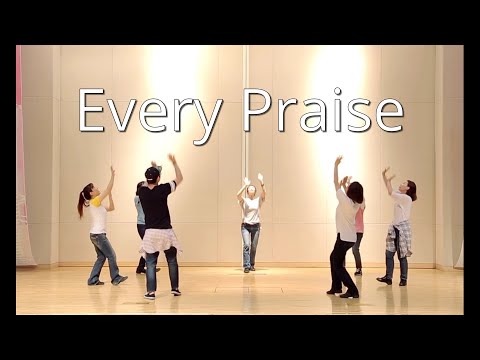 Habit has conquered all my knowledge. It's not as easy as it seemed. “You cut this cucumber so evenly and realistically placed all the plasticine circles,” I gathered. The son beamed.
Habit has conquered all my knowledge. It's not as easy as it seemed. “You cut this cucumber so evenly and realistically placed all the plasticine circles,” I gathered. The son beamed.
Wrong praise can:
- Make you doubt the one who praises.
- Lead to immediate retraction.
- portend trouble.
- Make you focus on your shortcomings.
- Generate an alarm or interfere with your activity.
- Perceived as manipulation.
How to properly praise a child:
- Pay attention to the actions and deeds of the child, pay attention to the details.
- From everything the child has done, choose what turned out best.
- Use the descriptive praise method.
- Summarize: “you did a good job”, “this is what I call perseverance”, “you can be proud of yourself”.
- Get away from global praise, it can hurt.
- Avoid praise that hints at past weaknesses or failures.
- Make sure that your boundless enthusiasm intersects with your child's desire to achieve something on their own.

- If you have given free rein to your initial reaction, but you must learn to supplement it with deeper observations.
- If you want to praise something that should have happened anyway, you can say about your feelings, for example, "I especially enjoyed today's family dinner."
- Avoid the phrase "I knew you could do it." You did not know and could not know. And the child may feel that his efforts were not taken into account.
- Accept children's mistakes and see them as part of the learning process.
- Do not allow yourself to compare the child with anyone in either praise or criticism.
How many of these phrases use these phrases when communicating with a child and with people close to us? And, after all, they are extremely necessary for each of us! We easily swear and express our dissatisfaction, but with such difficulty say a rare “thank you” or “well done”! Let's say these simple words and bright phrases more often, especially to your children, and then you won't have to scold them, constantly get annoyed and express your dissatisfaction, because there simply won't be such a need for this.
1. Well done!
2. You are on the right track!
3. Great!
4. You figured it out.
5. Amazing!
6. This is exactly what you need!
7. Much better than I expected!
8. Great!
9. Congratulations!
10. Great!
11. I'm proud of you!
12. Great!
13. I'm just happy!
14. Unforgettable!
15. Wow!
16. Your help is very important to me!
17. This is what we have been waiting for!
18. It's a joy to work with you!
19. This touches me to the core!
20. I need you!
21. Well said - simple and clear!
22. Everything that excites, worries and pleases you is important to me!
23. Witty!
24. I knew you could do it!
25. Talented!
26. I'll go crazy if something happens to you!
27. Extra class!
28. You are gifted!
29. Every day you get better!
30. You did a lot today!
31. Already better!
32. For me, there is no one more beautiful than you!
33.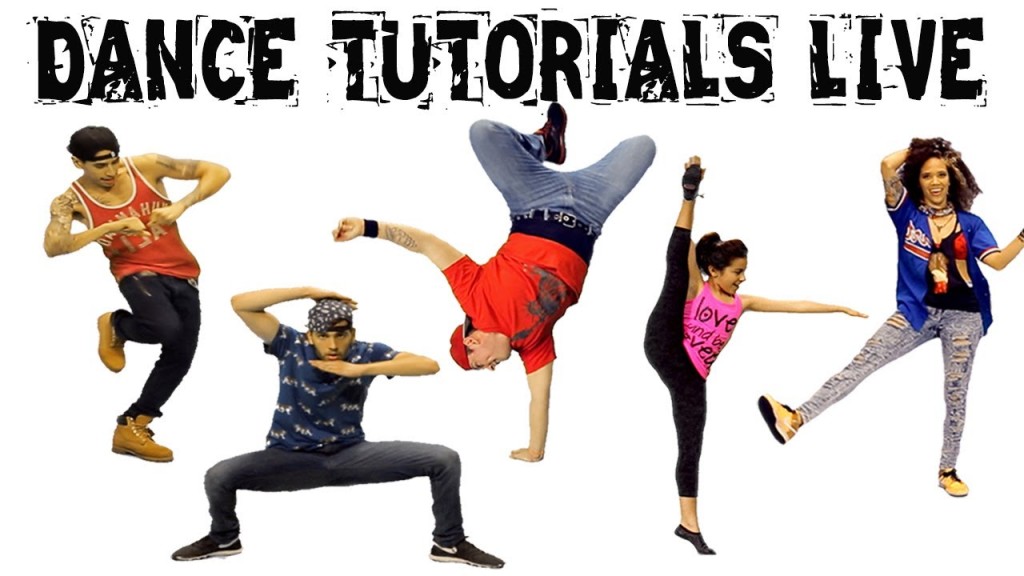 Excellent!
Excellent!
34. Even better than before!
35. Teach me to do the same!
36. Awesome!
37. I can't do without you here!
38. Cool!
39. Amazing!
40. I need you just the way you are!
41. Inimitable!
42. Incomparably!
43. No one can replace you!
44. Beauty!
45. I'm proud that you did it!
46. Like in a fairy tale!
47. Very clear!
48. I couldn't have done better myself!
49. Brightly, figuratively!
50. Fantastic!
51. Very impressive!
52. Better than everyone I know!
53. Great start!
54. You are just a miracle!
55. To this it remains to add: "I love you!"
When we praise a child for something and tell him "You're doing great!", then in this case we are talking about "conditional praise." Let's look at this concept in more detail.
Suppose you praise a child for putting away toys in his room or for eating everything at dinner. Who really wins? Maybe the phrase "Well done!" focused on our convenience rather than the emotional needs of the child?
Rita Dee Vries, professor of education at the University of Northern Iowa, calls it " Sweetened Control" ".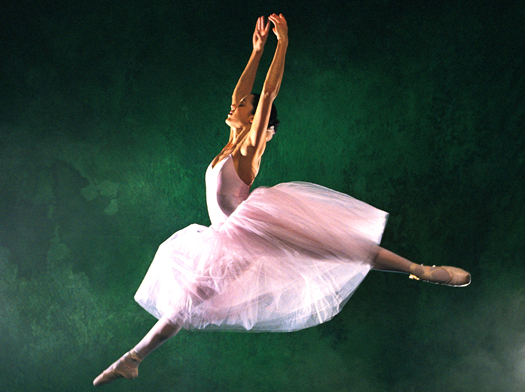 This kind of reward in the form of "You're doing well" is a way to make children meet the expectations of adults. If you think about it, punishment is built on the same analogy. This tactic can be effective for obtaining a specific result, and yet it is very different
This kind of reward in the form of "You're doing well" is a way to make children meet the expectations of adults. If you think about it, punishment is built on the same analogy. This tactic can be effective for obtaining a specific result, and yet it is very different
For example, a child can be involved in talking about what responsibilities are at home and school, or how certain actions and actions (and inactions) can affect other people. an adult into a child's world and is more likely to help children learn to think on their own about important things.0003
When we tell a child that he is doing well, we give an assessment of his personality, and the child will constantly crave our approval, confirmation that he lives up to this assessment. Children gradually become addicted to praise.
Of course, not all praise involves the control of children's behavior by adults. We can sincerely praise children, rejoicing in their deeds and accomplishments. And even in this case it is necessary to be attentive to our words. Instead of building up a child's self-esteem and healthy self-acceptance, praise can make them more dependent on us and our opinions. The more often we say, “I like the way you…” or “You did well…”, the less children learn to form their own judgments, and the more they get used to relying on adults' opinions about what is good and what is bad.
Instead of building up a child's self-esteem and healthy self-acceptance, praise can make them more dependent on us and our opinions. The more often we say, “I like the way you…” or “You did well…”, the less children learn to form their own judgments, and the more they get used to relying on adults' opinions about what is good and what is bad.
It turns out that the phrase "You're doing well" can not only not support the child, but even increase his level of anxiety. And the more often we will voice it to children, the more they will need it. This can carry over into adulthood, when the person desperately wants someone to say that he is doing everything right.
It is not easy enough to realize that "Well done!" is the same rating as "Very bad". The peculiarity of a positive judgment is not that it is positive, but that it is a judgment.
The phrase "Well done! Good drawing!" can encourage children to draw only as long as adults watch and praise. Often you may encounter a situation where children stop doing something due to the loss of attention on the part of adults to the activities of the child. Does praise motivate children? Of course! She motivates children to receive that same praise. And often this happens at the expense of commitment to the actions that cause it.
Does praise motivate children? Of course! She motivates children to receive that same praise. And often this happens at the expense of commitment to the actions that cause it.
The words of adults are very important for the child, over time he becomes dependent on praise and tries again and again to confirm his importance. And he begins to choose those tasks and deeds for which he will definitely receive the coveted "You're done!" The motive of avoiding failure begins to form, which will be built into the life picture of the world of an already adult person.
What children really need is absolute acceptance and in unconditional love . This is not just a difference from praise - it is its opposite. "Well done!" - this is just a convention, which means that we offer attention, approval, recognition in exchange for the desire to guess and confirm our expectations.
What is the alternative? It all depends on the specific situation, but no matter what we decide to say, it is very important that it is associated with unconditional love and support - because they are children, not because they have done something.
What can we offer a child instead of the usual evaluative praise?
1. A simple, non-judgmental statement. Just voice what you see.
The child tied his own shoelaces:
- "You yourself tied your shoelaces."
- "You did it" .
Such a statement will show the child that his success has not gone unnoticed. It will also make him proud that he did it.
In other situations, you can describe what you see in more detail.
For example, a child brought his drawing to show you. We catch ourselves at this moment wanting to give evaluative praise, and we say:
- "The house looks like a real one. The choice of colors attracts attention, it would never even occur to me to use such tones. And what fluffy clouds, just like yesterday we saw on the street".
The child showed concern for another or showed generosity. Here you can draw the attention of the child to how his act affected another person.
- "Look at Masha. She immediately cheered up and smiled when you shared the molds with her."
This is completely different from praise, where the main emphasis is on the adult's attitude to the child's act.
2. Talk less, ask more.
It is very valuable when, in addition to describing what we see, we join the child through questions.
- "How did you make the clouds so voluminous?"
– "Which part of the drawing was the most difficult?"
- "What do you like most about drawing?"
- "How did you guess that you can use a different brush here?"
The child feels the involvement of an adult in his activities, sees a sincere interest and understands without evaluative praise that he succeeds in what he does. And also, through questions, the child learns to look at his activity as if from the outside, notices what works best, what he himself likes and what not.
Of course, the above does not mean that all compliments, all expressions of admiration are harmful. Not at all, you just need to be aware of our motives when we say certain words, as well as their possible consequences. The main issue is not memorizing a new scenario of actions, it is much more important to imagine the long-term goals of our children and observe the effect of the words we utter.
Tags: Upbringing , parent-child relationship,
To report a bug, select text and press Ctrl+Enter
Read related:
Public opinion is confident - if the mother-daughter relationship has reached an impasse, then it is necessary to take a closer look at the daughter. Cultural myths about motherhood - that all women are a source of love for their children, that motherhood is an instinct and that all mothers love their children unconditionally - and form the attitude of people towards a daughter who either completely cut off contact with her mother or maintains minimal contact, and this is obvious. not only close, but also unfamiliar people.
not only close, but also unfamiliar people.
Tags: Shame , parent-child relationship, Translations,
Divorced fathers often visit a psychologist. They make different complaints and want different things. But they all want to understand why everything has developed in their lives in a certain way. They ask if they still have chances for a good and close relationship, a new family. And why are they not succeeding, although five, eight, ten years have passed since the divorce? Let's try to describe the options for the future for divorced fathers.
Tags: Divorce , Men , parent-child relationship,
Psychologist Tatyana Usenkova: "Disruption of a child's attachment to an adult in childhood affects many factors in the future: the character of the child, the idea of the benevolence of the world, its fairness, the value of oneself, what relationships with other people, with children will become and a partner, how he will live and come out of traumas in the future, on eating behavior and much more.
Tags: Upbringing ,
When I publish materials about spanking children, there are always people who are ready to defend their "right" to beat children. They claim all sorts of reasons and none of them can really be an excuse.
Tags: Upbringing , domestic violence, parent-child relationship,
When the circle of the destructive scenario breaks, the family will become the place where adults trust the choice of the child. And the child, in turn, knows that he has somewhere to go - after all, at home he will be supported by anyone, without conditions, regardless of the results.
Tags: Upbringing , Scenarios, Separation from parents
Psychotherapist Olga Troitskaya: "Many children, and even adults, have in their conscious, speech storage a very small and unsteady number of words denoting feelings. The more conscious palette of feelings, the more flexible and lively a person's thinking, the freer he is in his movements, and the easier it is for him to adapt to life situations.
Tags: Upbringing , The senses ,
Psychologist Irina Gift: "It seems that the appearance of a child gives a person the status of "adult" and "serious", but it is in relationships with children that all our personal immaturity is manifested.
Tags: Upbringing , infantilism, parent-child relationship,
Psychologist Pavel Zygmantovich: "Do you always want to be a wonderful parent who does not prohibit anything and does not punish in any way? A good dream, a beautiful one. In reality, alas, a parent needs to set boundaries and from time to time punish them for violating them."
Tags: Upbringing , parent-child relationship,
Child psychologist Antonina Oksanich: "Facing with children's fears, parents are puzzled how best to help the child cope with them. Where do children's fears come from and how fairy tale therapy helps kids - let's discuss."
Tags: Upbringing , fairy tale therapy,
I bet you're trying to guess what the word is and different options come to mind: Move on. Forgive. Be kinder. Be aware. Learn to understand. Distance yourself. Just look ahead and don't look back. To be strong. No. That word is let go.
Forgive. Be kinder. Be aware. Learn to understand. Distance yourself. Just look ahead and don't look back. To be strong. No. That word is let go.
Tags: Upbringing , motherhood, Translations,
Switched from diapers to these panties from Goon. I have long wanted to get to know them, but somehow it didn’t always work out, then it’s not available, or even now I regret that I didn’t do it earlier. They exceeded all my expectations in terms of quality. Of the pluses for me personally, it is a very soft, delicate, cotton material. They also do not have any smell and plus they neutralize third-party unpleasant odors. The elastic bands hold the diaper well in place, no matter what position the daughter sleeps in, and the gel absorbs moisture very quickly and the feeling of dryness remains even when the panties are completely filled. By the way, you can check this thanks to the convenient indicator stripes. I want to note that my daughter began to sleep much calmer, wakes up less often. Like us, too, now we sleep better and longer) The bed is always dry, you don’t have to constantly wash the sheets) So we are calm with them in any situation, both on a walk and during sleep, these panties will not let us down. Well, the most important plus is that the daughter feels comfortable in them, I think she likes them)
Like us, too, now we sleep better and longer) The bed is always dry, you don’t have to constantly wash the sheets) So we are calm with them in any situation, both on a walk and during sleep, these panties will not let us down. Well, the most important plus is that the daughter feels comfortable in them, I think she likes them)
Here is the case when parents consider their children to be fools who do not understand anything. You, "protecting the psyche of the child", made the older child suffer, look for his beloved cat, knowing that she had died. Most likely, he was not so stupid, he understood that "it became easier for her, but she ran away from the clinic", most likely, it means that mom is just lying, but logic came into conflict with the still existing trust in the mother, when you think that if mom says something, then she is right - and he understood what happened, but still he continued to wait and hope: “What if she really is alive, because mom can’t lie to me?” And then, when even the youngest told you that he still understands everything (and they probably discussed the case with each other, and more and more came to disappointing conclusions that mom was lying), you also convinced him that he supposedly " not guilty. " In my opinion, this is a direct way to raise children who are not able to take responsibility for their actions. I think it would be much more useful here to say that yes, Kusya died because you pushed her, but there's nothing to be done, and now you know that your pampering and experiments can lead to serious consequences, and, of course, you you will never do again. The child would cry and forever remember what he did. A person's personality is made up of memories. And please don't promote mosquito nets as protection against falling cats. They are designed to protect your home from insects, and nothing more. At most, they can protect your parrot from flying out of the window. Here, recently, the news flashed that a one-year-old child fell out with such a net from the 10th, or something, floor ... died, of course. These nets will not protect a cat or a child. They are made of plastic, and are glued with double-sided tape, or pinned with buttons. The slightest load and the grid flies out.
" In my opinion, this is a direct way to raise children who are not able to take responsibility for their actions. I think it would be much more useful here to say that yes, Kusya died because you pushed her, but there's nothing to be done, and now you know that your pampering and experiments can lead to serious consequences, and, of course, you you will never do again. The child would cry and forever remember what he did. A person's personality is made up of memories. And please don't promote mosquito nets as protection against falling cats. They are designed to protect your home from insects, and nothing more. At most, they can protect your parrot from flying out of the window. Here, recently, the news flashed that a one-year-old child fell out with such a net from the 10th, or something, floor ... died, of course. These nets will not protect a cat or a child. They are made of plastic, and are glued with double-sided tape, or pinned with buttons. The slightest load and the grid flies out.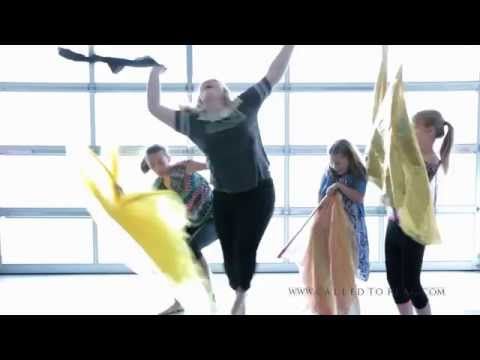 The cat can jump onto the net after a bird or a butterfly and fly down. Or maybe just start tearing it, sharpening its claws, and tear it apart. If you start a cat, then buy and install an anti-cat net, this is a metal grill that is firmly attached to the frame with self-tapping screws or bolts, and can even withstand an adult.
The cat can jump onto the net after a bird or a butterfly and fly down. Or maybe just start tearing it, sharpening its claws, and tear it apart. If you start a cat, then buy and install an anti-cat net, this is a metal grill that is firmly attached to the frame with self-tapping screws or bolts, and can even withstand an adult.
"If you don't know what to praise a child for, think of it!" - every teacher should arm himself with such a simple recommendation of the psychiatrist and psychotherapist V. Levy. How to properly praise a student? We propose to look into this issue together.
The value of teacher praise
Let's start with the fact that it is necessary to praise the student! Why? To appreciate the efforts of the student, support him, increase self-esteem and increase motivation to study the subject. A teacher's approval can do wonders! Water that has fallen on a withering flower acts in the same way as a kind teacher's word on a child who needs his support and attention.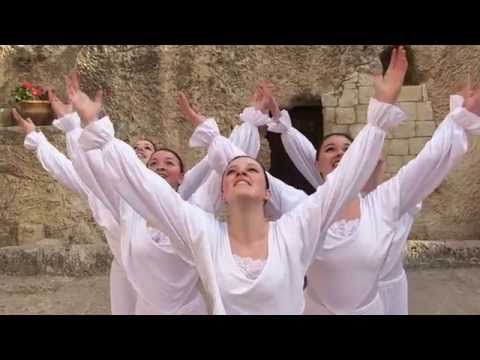
The main function of praise is to convey the teacher's sincere faith in the abilities of his student. But every student needs a positive assessment and approval of their activities and achievements. This is the only way to learn and have fun. The task of the teacher is to constantly find good reasons for verbal encouragement of his pupils.
The golden rules of teacher praise
How to praise a student in a lesson and not do him a disservice? For this, it is important for the teacher to observe the following rules.
1. Praise for diligence!
Praise should be given to the student for the efforts and efforts that he made in completing the task or assignment, and not for the good abilities and intelligence given to him by nature. For example, you can praise a student in a Russian language lesson for an excellent dictation like this: “Well done! You read a lot, diligently prepared for work, repeated all the rules! It is not quite right in this case to say: “You did not make a single mistake in the dictation! You have innate literacy!” And in an English lesson, it will become a good motivation.
2. Praise the action, not the person!
In praise, it is very important to express approval of the actions and achievements of the student, and not to assess his personality. Otherwise, the student may develop a biased self-esteem and conceit. And this, as they say, is a topic for a separate article.
3. Be clear about what you are praising!
It is important that the student understands why he was specifically praised, what exactly he managed to do well. General praise is not very effective, it raises doubts about its sincerity. For example, if you want to praise a student in a drawing lesson, you can pay attention to the details of the drawing: “What a beautiful fruit bowl you managed to portray!”. At the same time, it is recommended to avoid common phrases: “You are smart! A real artist!" If appropriate, try to emphasize the difficulty of the task successfully completed by the student.
4. Praise in moderation and to the point!
Teacher praise should be sincere, well-deserved, moderate and justified so as not to cause envy on the part of other students.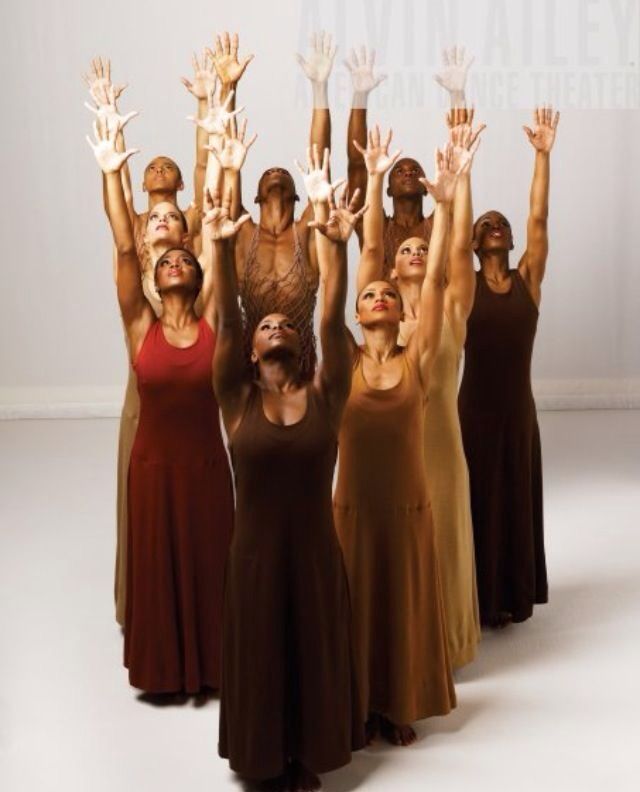 Immeasurable praise loses all value and meaning, accustoms the child to cheap success. A student who is praised for every little thing subconsciously expects approval for almost every action. And when he does not receive it, he is sincerely perplexed. In addition, praise without measure is a direct path to arrogance, the cause of laziness and indifference to other subjects.
Immeasurable praise loses all value and meaning, accustoms the child to cheap success. A student who is praised for every little thing subconsciously expects approval for almost every action. And when he does not receive it, he is sincerely perplexed. In addition, praise without measure is a direct path to arrogance, the cause of laziness and indifference to other subjects.
5. Praise not only "favorites"!
Every class has an informal hierarchy, where some students are considered to be more commendable than others. How to praise your pupils who are not popular with classmates? Persistent praise towards them can only worsen the attitude of the class towards them. It is important to reasonably support such students, pay attention to their success in educational and extracurricular activities. To praise their “favorites”, it is advisable for the teacher to choose the most appropriate moment for this.
6. Stay positive!
How easy it is for a teacher to increase a student's self-esteem with the help of verbal approval! But just one extra sentence can ruin everything.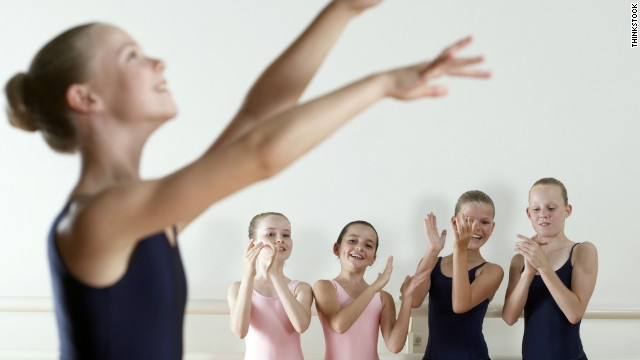 For example, if a teacher wanted to praise a student in a math class for an interesting solution to one problem, he should not point out that the rest of the work was not successful for him. An unsuccessful example of praise: “Well done! You solved this problem in an unusual way! And I don’t even want to look at the rest of the examples!” In this context, the last sentence should not have come from the lips of the teacher.
For example, if a teacher wanted to praise a student in a math class for an interesting solution to one problem, he should not point out that the rest of the work was not successful for him. An unsuccessful example of praise: “Well done! You solved this problem in an unusual way! And I don’t even want to look at the rest of the examples!” In this context, the last sentence should not have come from the lips of the teacher.
Teacher praise should not contain reproaches, conditions or clarifications, it should end on a good note. Having praised the student, it is not necessary after a while to dissuade him of the significance of this personal achievement.
By the way, it is equally important to teach the parents of their children.
7. Don't pit one student against the whole class!
You cannot praise one student if he is not supported by the group. Even if he did the right thing. For example, how to praise a student in a chemistry class if he did his homework alone? It is best to do this alone with the child. After all, praise in front of the whole class (albeit well-deserved) in this case can give rise to classmates not so much envy as aggression. But this student is not to blame for anything!
After all, praise in front of the whole class (albeit well-deserved) in this case can give rise to classmates not so much envy as aggression. But this student is not to blame for anything!
8. Praise without comparison!
It is important that the teacher's praise be unconditional and not contain comparisons. Do not compare the successes, results and personal qualities of the student with the achievements of peers. Don't say that Fedor did a good job, because he did a better job than his classmate Ivan or Nikolai.
9. Reinforce praise!
Praise backed up by approving non-verbal components (smile, facial expressions, open gestures) is more powerful and effective.
10. Stock up on "I-messages"!
Praise is more effective when expressed by the teacher using the "I-message". For example, you can praise a student in a literature class like this: “I am very glad that you managed to learn and expressively tell this difficult poem.

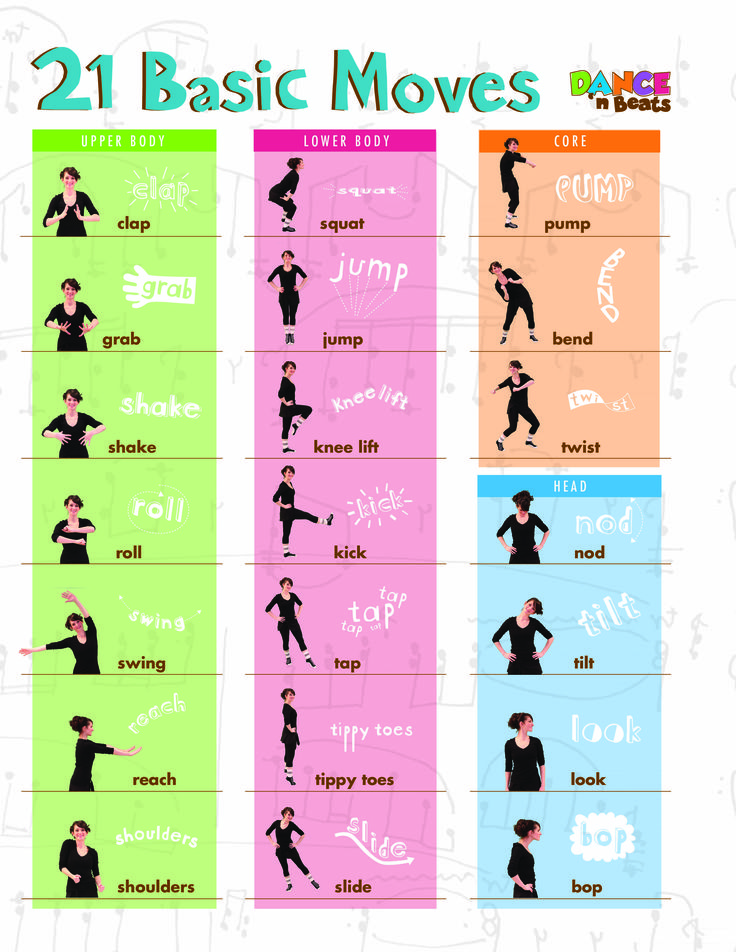
 There
There 
 This workshop will prepare the leader on how to effectively teach from the Student Training Manual. The Cost for the manual is $17. Should you want information to attend a Facilitator’s Training Workshop, please send your request via e-mail to
This workshop will prepare the leader on how to effectively teach from the Student Training Manual. The Cost for the manual is $17. Should you want information to attend a Facilitator’s Training Workshop, please send your request via e-mail to 